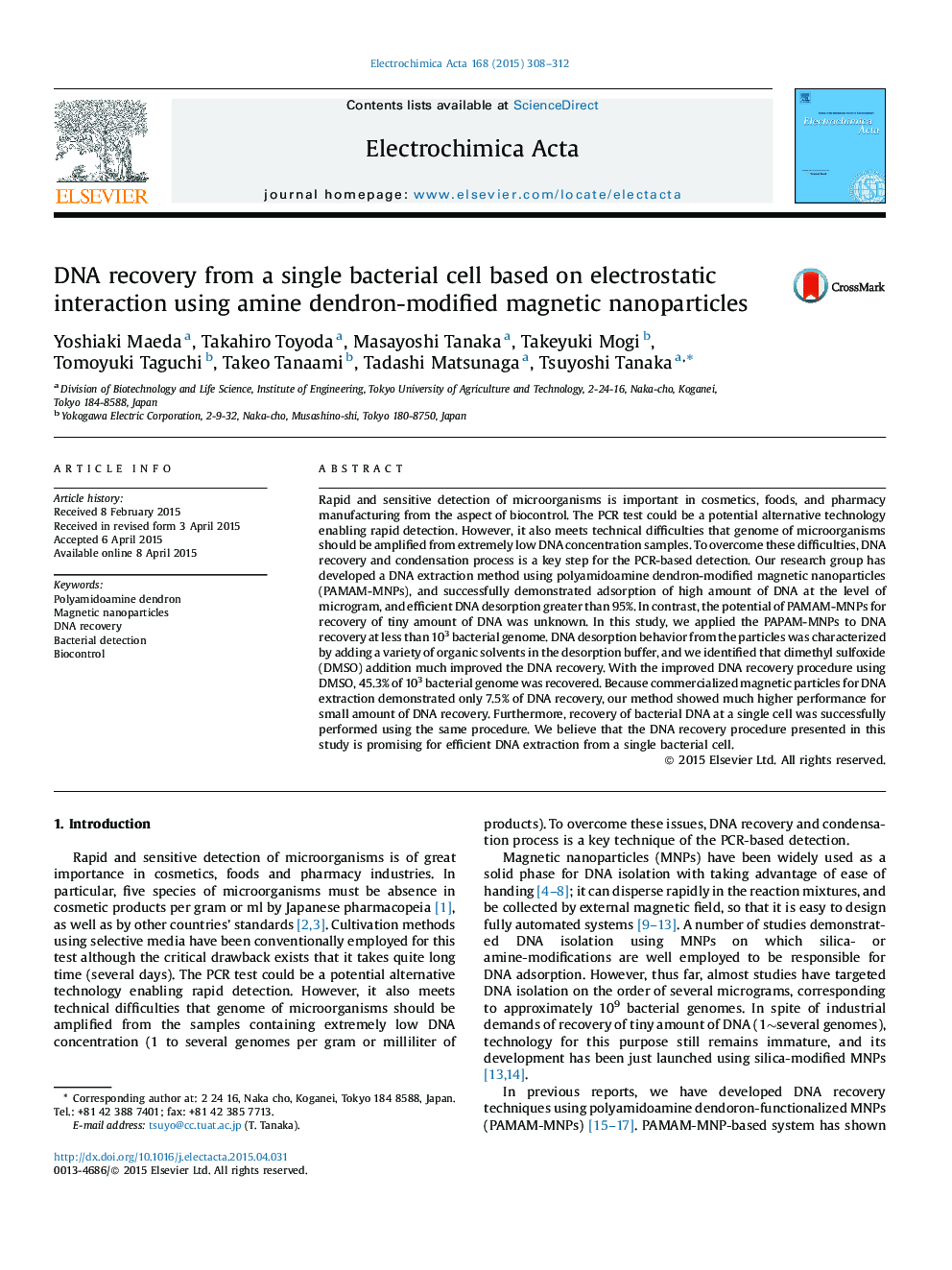| Article ID | Journal | Published Year | Pages | File Type |
|---|---|---|---|---|
| 184249 | Electrochimica Acta | 2015 | 5 Pages |
Rapid and sensitive detection of microorganisms is important in cosmetics, foods, and pharmacy manufacturing from the aspect of biocontrol. The PCR test could be a potential alternative technology enabling rapid detection. However, it also meets technical difficulties that genome of microorganisms should be amplified from extremely low DNA concentration samples. To overcome these difficulties, DNA recovery and condensation process is a key step for the PCR-based detection. Our research group has developed a DNA extraction method using polyamidoamine dendron-modified magnetic nanoparticles (PAMAM-MNPs), and successfully demonstrated adsorption of high amount of DNA at the level of microgram, and efficient DNA desorption greater than 95%. In contrast, the potential of PAMAM-MNPs for recovery of tiny amount of DNA was unknown. In this study, we applied the PAPAM-MNPs to DNA recovery at less than 103 bacterial genome. DNA desorption behavior from the particles was characterized by adding a variety of organic solvents in the desorption buffer, and we identified that dimethyl sulfoxide (DMSO) addition much improved the DNA recovery. With the improved DNA recovery procedure using DMSO, 45.3% of 103 bacterial genome was recovered. Because commercialized magnetic particles for DNA extraction demonstrated only 7.5% of DNA recovery, our method showed much higher performance for small amount of DNA recovery. Furthermore, recovery of bacterial DNA at a single cell was successfully performed using the same procedure. We believe that the DNA recovery procedure presented in this study is promising for efficient DNA extraction from a single bacterial cell.
